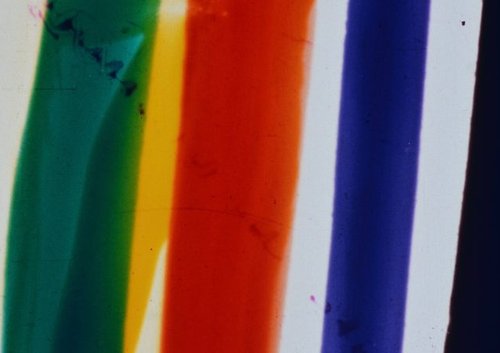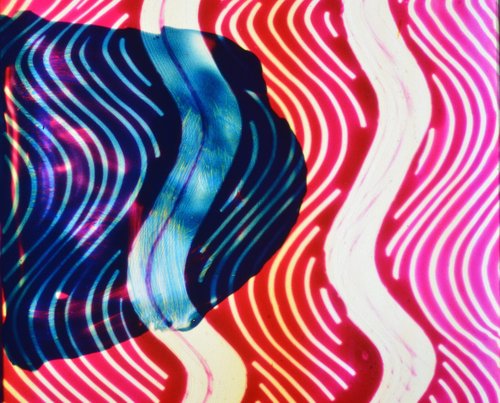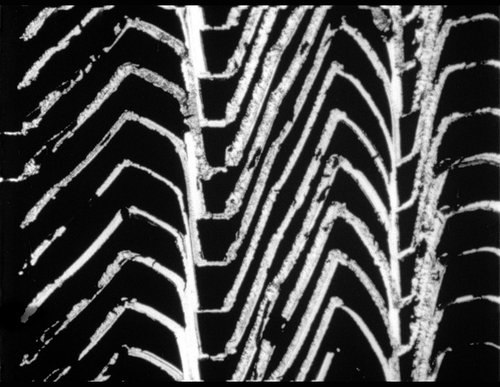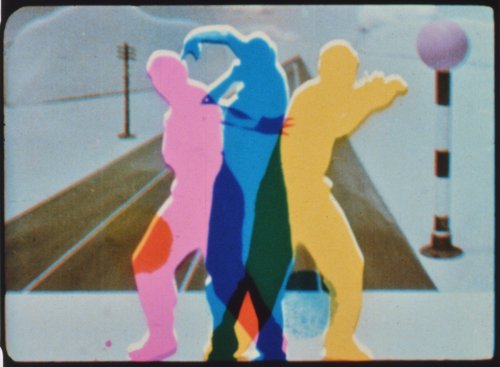
Our new online exhibition Free Radical: Len Lye at 120 is an exciting showcase of two dozen of Len Lye’s remarkable films – the first time these high quality digital versions have been shared freely online. A quick background to Lye comes from Ngā Taonga staff member and Len Lye Foundation Trustee Sarah Davy. This text was originally published in New Zealand Film, p 153.
New Zealand-born Len Lye (1901-1980) pioneered techniques of direct filmmaking – stenciling, painting and inscribing images directly onto film stock – and remains internationally renowned primarily for his kinetic sculptures and experimental short films, including A Colour Box (1935), Free Radicals (1958) and Particles in Space (1980).

Still from A Colour Box, S253558.
For most of his life, Lye lived overseas and was unknown in New Zealand. Increasingly, however, and especially from the late 1960s, curious New Zealanders sought him out. Asked how New Zealand informed his work, he commented on ‘the early influences of the climate, the topography, the feeling of nature… I’m consciously sure this gets into your bones’. Lye returned for a holiday in 1968, and he made a significant impact on those he met. Author Margaret Orbell wrote, ‘[Lye is] total alive, as powerful and energising as a force of nature. He has no conceit, but he has the authority and vitality of genius.’

Still from Free Radicals, S254072.
In his later years, Lye was gratified to receive film grants from the New Zealand Film Commission and the Queen Elizabeth II Arts Council. Furthermore, a television documentary, Len Who?, was made by the New Zealand Broadcasting Corporation in 1972. On his second and final visit in 1977, when the Govett-Brewster Art Gallery in New Plymouth exhibited his films and sculptures together for the first time in New Zealand, Lye agreed to the establishment of a not-for-profit organisation to protect and promoted his legacy. In his typically off-beat way, Lye wrote wryly that it seemed he was now viewed within New Zealand as ‘a native son of home-grown chlorophyll kind of organics so they want to… take all my goop and preserve it… – films and all – [which] need dry constant air and temperature & not scattered to the rain drain new brain’.
The Len Lye Foundation, established in 1980, works with the Govett-Brewster to preserve his archives and sculptures, and with Ngā Taonga Sound & Vision to care for his films.

Still from Rainbow Dance, F2147.